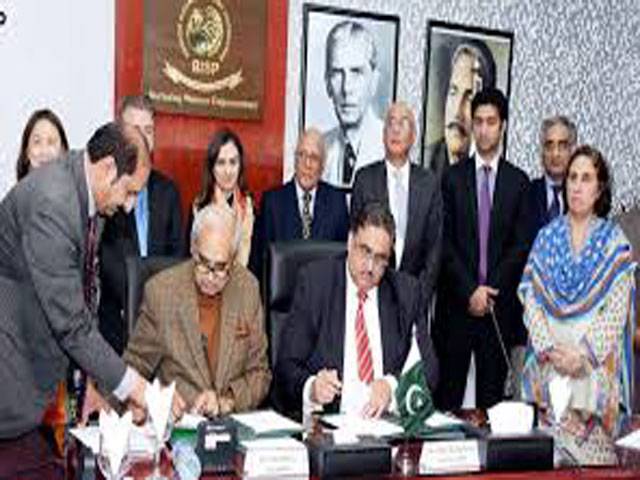ISLAMABAD - Benazir Income Support Programme (BISP) and National Rural Support Programme (NRSP) have signed a memorandum of understanding (MoU) to lay out and agree on the broad framework of “Business Incubation for Self-employment” (BISE) Programme for graduation of BISP beneficiaries across Pakistan.
The first phase of the $35 million BISE Programme shall be implemented over two years from April 2018 as further specified in the SLA by NRSP as implementing agency.
The programme is financed by ADB under Social Protection Development Project, which is to be followed by signing of service level agreement (SLA) for the BISE Programme.
The ADB and the government of Pakistan mutually agreed to include NRSP as an “implementing agency” responsible for carrying out the “Business Incubation and Inclusive Business Components” of the BISP Graduation Programme (BGP) on the terms and conditions to be agreed between BISP and NRSP and duly endorsed by ADB. The said project has also been endorsed by the prime minister.
BISE aims at making poor people ready for taking up viable self-employment. The programme will target a total of 100,000 households in total 5 districts including Bahawalpur, Charsadda, Jacobabad, Kech and Nasirabad. The selected beneficiaries shall be competent to be self-employed and show their willingness to be part of the graduation programme.
Chairperson BISP Marvi Memon stated that the programme was envisaged in 2015 and it took three years to launch this initiative.
Director General ADB Werner Liepach said, “We consider ourselves as partners, not donors.” He said that the partnership between BISP and ADB started with support for the Unconditional Cash Transfer (UCT) segment only. He added that $400 million were initially given to BISP to increase the number of BISP beneficiaries.
Werner appreciated the efforts of BISP and said that he was happy to see that the programme is moving towards its second phase of graduating beneficiaries. He further added that the flow of funds will not be a problem as the programme progresses.
The key features of BISE programme comprise of profiling and validation of targeted households on their potential for self-employment. It includes social mobilisation and capacity building specific technical skill trainings and business development support, Income Generating Grants (IGGs), access to working capital through Community Investment Fund, business coaching through developing their capacities in asset and business management, numeracy and functional literacy and linkages development.
It also includes insurance of beneficiaries against accidental death, hospitalisation and disability risks, linking up the poor to the value chains of small and large companies in the private sector.






